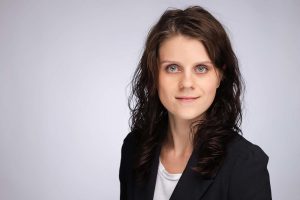
Christina Lara Klatt – Ruhr University Bochum (Germany)
MEDI 408 – Hematology/Coagulation Consults
MEDI 449 – Critical Care Medicine
Tell us about your elective experience at UNC.
Looking back at my time at UNC, I am absolutely stunned about how much I have learned during my time! I am glad having had this extraordinary experience. In total I spent two months here, the first was in the benign hematology department, the second at the medical ICU.
What does a typical day look like for you?
During my first month, I did benign hematology, which was a consult service. Officially, my days started at 8.30am, but I tried to come earlier trying to check on my patients. Twice a week, a seminar for the heme-onc fellows took place, which I gladly joined because it was so educational. Before midday, I was given consults, went through the patient’s labs (heme is mostly labs) and went to see them in person. If my schedule allowed to do so, I attended noon-conferences, not only for the food, but primarily for the outstanding lectures. In the afternoon, the attending joined us. Then we presented and discussed our patients. The attending would usually tell witty and interesting stories with regard to our cases. Then the rounding began that could take a while given that our patients were scattered all over the hospital. Frequently, we went to examine bone marrow biopsies or peripheral blood smears. Depending on the day, I either managed to write consult notes before rounding or after.
What do you like about your elective experience at UNC?
Many aspects! What I liked the most was that I had a chance to transform my “book knowledge” to clinical knowledge. Back home, we are not much exposed to patients. Of course, we take histories and physical exams, but these patients are often pre-selected. That means that they usually suffer from an isolated condition and are otherwise healthy, their course of the disease is very textbook-ish. Whereas here, the patients have it all, multiple illnesses at the same time and you have to figure out how to filter. What is important? What is still considered normal, while which change is worrisome? I really enjoyed applying the information I have gathered over the years to real cases.
Being German, we are not particularly known to be the most embracing of all people. People are not unfriendly, but not friendly either. In contrast, in the US everyone is super nice and open, engaging in small talk all the time. Despite the frequent rotations at the hospital, the new interprofessional teams immediately work together as if they would have been colleagues for years.
Did you face any challenges?
Especially my first rotation in the US was rather challenging, at least initially. Not being a native speaker nor studying at a med school, where English would be the educational language, I firstly had to acquire the necessary medical English vocabulary. Furthermore, doctors use an excessive abundance of abbreviations! Like soooo many! On my phone I was constantly googling “medical abbreviation …”. Admittedly, once you are privy to that secret language they come really handy and safe you bunch of time.
Do you have advice for future students?
I can only speak for myself, but I came to UNC in order to gain as much medical knowledge as possible. Within a few months, I am going to be a doctor myself and be responsible for my own patients, hence I want to be prepared in the best possible way. Take initiative! The doctors are glad to share their knowledge with you, therefore ask them as much as possible, ask for patients. Besides, UNC offers so many lectures and conferences. Attend them whenever you can, even though they might take place before your scheduled working hours. Lastly, uptodate is your friend, especially the tables.
When you weren’t working, what did you do?
I formed strong friendships with other international students and got to know about their cultures and medical system. Together we visited much of North Carolina and Washington DC. It was tempting to stay at home on my days off and recharge from the busy week, but my drive was to make it a wholesome experience. I wanted to see more than the hospital and also engage in American culture.